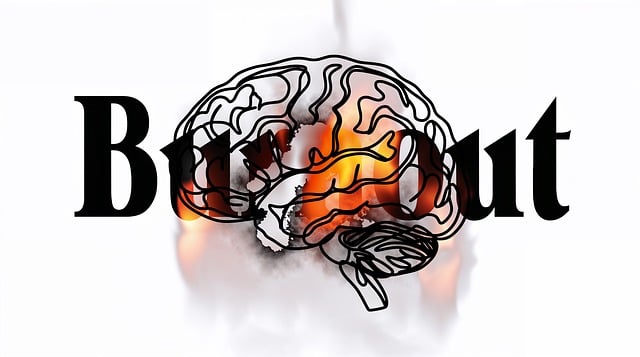Parker Family Counseling Therapy emphasizes building emotional well-being through the RFM framework: Resilience, Strengths, and Challenges. By combining CBT, mindfulness, and tailored activities for different age groups, they strengthen self-awareness, resilience, and family bonds. Integrating RFM principles into daily life through reflection, goal setting, and challenge acceptance prevents mental health issues. This evidence-based approach, highlighted in their Mental Wellness Podcast Series, uses data-driven techniques to track progress and celebrate successes, fostering a supportive community focused on open dialogue about mental health.
Resilience is a vital asset in navigating life’s challenges, and the Resilient Family Model (RFM) offers a structured approach to building this strength. This article explores how Parker Family Counseling Therapy leverages RFM to enhance families’ resilience, providing valuable tools for all ages. We’ll delve into various exercises, practical strategies, and evaluation techniques to help readers understand and incorporate RFM into their daily lives, fostering a more resilient family dynamic with the guidance of professionals like Parker Family Counseling Therapy.
- Understanding RFM: Resilience, Strengths, and Challenges
- The Role of Parker Family Counseling Therapy in Building Resilience
- Types of Resilience-Building Exercises for Different Age Groups
- Incorporating RFM into Daily Life: Practical Tips and Strategies
- Measuring Progress and Celebrating Success: Evaluating RFM Techniques
Understanding RFM: Resilience, Strengths, and Challenges

Resilience is a key component of emotional well-being and mental health, enabling individuals to bounce back from adversity and navigate life’s challenges with strength and adaptability. At Parker Family Counseling Therapy, we recognize that building resilience is essential for fostering a healthy and fulfilling life. This involves not just overcoming hardships but also developing internal strengths and coping mechanisms.
Understanding RFM (Resilience, Strengths, and Challenges) as a framework can be powerful. Resilience equips individuals with the ability to face difficulties head-on, while Self-Care Practices and Burnout Prevention Strategies for Healthcare Providers play a pivotal role in enhancing this quality. By identifying personal strengths and implementing effective challenges, one can strengthen their resilience. This process encourages Self-Awareness Exercises, allowing individuals to recognize their capabilities and develop strategies for navigating life’s turbulent waters.
The Role of Parker Family Counseling Therapy in Building Resilience

Parker Family Counseling Therapy plays a pivotal role in fostering resilience among individuals and families. Through tailored interventions, this therapeutic approach equips clients with effective coping strategies to navigate life’s challenges. By integrating evidence-based practices, such as cognitive-behavioral therapy (CBT) and mindfulness techniques, the counseling services address not just immediate issues but also promote long-term mental wellness.
The therapy’s holistic nature extends beyond individual growth; it strengthens family connections and enhances communication. This supportive environment encourages open dialogue, fostering a sense of belonging and security. Moreover, Parker Family Counseling Therapy advocates for Mental Health Policy Analysis and Advocacy, ensuring that clients are empowered not just in their personal journeys but also in navigating the broader systemic challenges that can impact mental wellness. Incorporating these practices contributes to the development of Mental Wellness Coaching Programs, offering comprehensive support tailored to each family’s unique needs.
Types of Resilience-Building Exercises for Different Age Groups

Resilience-building exercises play a pivotal role in fostering mental fortitude and coping strategies for individuals across various age groups. For children and adolescents, engaging activities like mindfulness meditation, creative arts therapy, and outdoor adventures can be highly effective. These methods encourage emotional awareness, teach stress management techniques, and promote healthy ways of expressing and regulating feelings. For instance, Parker Family Counseling Therapy emphasizes the use of play and storytelling as therapeutic tools to enhance resilience in younger clients.
As individuals enter adulthood, exercises focusing on cognitive reframing, problem-solving skills, and social support networks become valuable. Adulting workshops, mental wellness podcasts, and peer support groups contribute to public awareness campaigns for inner strength development. These initiatives help young adults navigate life’s challenges, build resilience, and maintain mental health. By incorporating such diverse strategies, Parker Family Counseling Therapy ensures comprehensive resilience-building programs tailored to different age groups.
Incorporating RFM into Daily Life: Practical Tips and Strategies

Integrating RFM (Resilience, Flexibility, and Mastery) principles into daily routines can significantly enhance one’s mental health awareness and emotional well-being. Parker Family Counseling Therapy offers practical tips for adopting this approach. Start by setting aside dedicated time for self-reflection each day. This could be a quiet morning moment or a peaceful evening ritual where you assess your resilience, identify areas of flexibility, and celebrate personal achievements. Simple practices like journaling, meditation, or even walking in nature can support this process.
Additionally, engage in activities that foster mastery and control over your life. Learning new skills, setting realistic goals, and actively seeking challenges can boost your sense of accomplishment. Whether it’s taking up a hobby, learning to cook, or tackling a personal project, these activities contribute to emotional well-being promotion techniques. Remember, consistent practice strengthens resilience, making it an effective tool in preventing issues like depression.
Measuring Progress and Celebrating Success: Evaluating RFM Techniques

Measuring progress is a vital step in any resilience-building journey, and RFM techniques offer a powerful framework for evaluation. Parker Family Counseling Therapy has recognized the importance of tracking client development and uses RFM analysis to assess changes in risk factors, functioning, and coping mechanisms over time. This data-driven approach allows therapists to tailor interventions effectively. By regularly monitoring these metrics, they can identify areas where clients are thriving and those that require additional support.
Celebrating success is an integral part of the process. Recognizing milestones achieved through RFM techniques not only motivates clients but also provides valuable insights for the therapy team. The Mental Wellness Podcast Series Production often highlights client stories, showcasing the positive outcomes of these exercises. This approach encourages open dialogue about mental health and emotional well-being promotion techniques, fostering a supportive community where success stories inspire others to embark on their healing journeys. Moreover, it enhances the healthcare provider cultural competency training by demonstrating how diverse clients can benefit from tailored resilience-building strategies.
Resilience is a vital asset for individuals of all ages, and integrating RFM (Resilience, Strengths, and Challenges) techniques into daily life can significantly enhance well-being. As discussed in this article, Parker Family Counseling Therapy offers valuable insights and strategies to build resilience, tailoring approaches to different age groups. By combining theoretical understanding with practical tips, individuals can foster adaptability and cope effectively with life’s challenges. Measuring progress through evaluation is essential to recognizing growth and success, encouraging continued engagement with RFM principles for long-lasting positive change.








